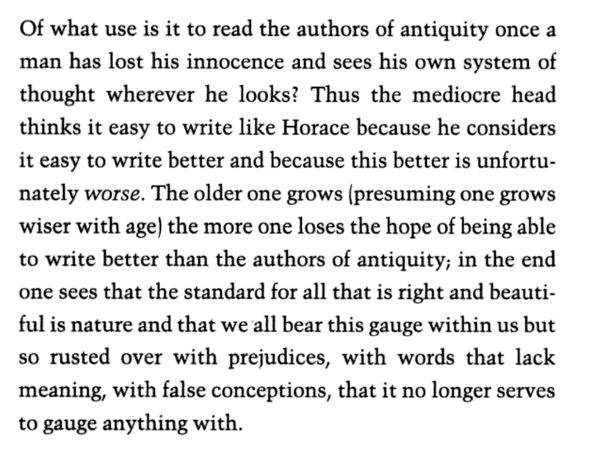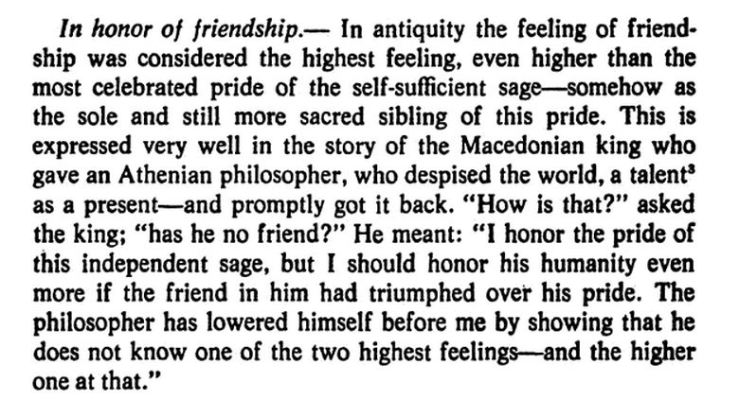
From Georg Christoph Lichtenberg’s The Waste Books. English translation by R.J. Hollingdale. NYRB.


From Georg Christoph Lichtenberg’s The Waste Books. English translation by R.J. Hollingdale. NYRB.
Happiness in this world, when it comes, comes incidentally. Make it the object of pursuit, and it leads us a wild-goose chase, and is never attained. Follow some other object, and very possibly we may find that we have caught happiness without dreaming of it; but likely enough it is gone the moment we say to ourselves, “Here it is!” like the chest of gold that treasure-seekers find.

He was an aphorism writer, there are countless aphorisms of his, I thought, one can assume he destroyed them, I write aphorisms, he said over and over, I thought, that is a minor art of the intellectual asthma from which certain people, about all in France, have lived and still live, so-called half philosophers for nurses’ night tables, I could also say calendar philosophers for everybody and anybody, whose sayings eventually find their way onto the walls of every dentist’s waiting room; the so-called depressing ones are, like the so-called cheerful ones, equally disgusting.
From Thomas Bernhard’s novel The Loser.
 From The Gay Science, Friedrich Nietzche.
From The Gay Science, Friedrich Nietzche.
Friedrich Nietzsche. From Mixed Opinions and Maxims:
(168) Praise of aphorisms.— A good aphorism is too hard for the tooth of time and is not consumed by all millennia, although it serves every time for nourishment: this it is the great paradox of literature, the intransitory amid the changing, the food that always remains esteemed, like salt, and never loses its savor, as even that does.
From Human, All Too Human (aphorism 193):
Draconian law against writers. One should regard a writer as a criminal who deserves acquittal or clemency only in the rarest cases: that would be a way to keep books from getting out of hand.